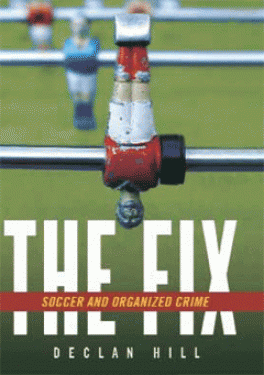Sports Governance: Doping and Integrity Measures

By Catherine Ordway, Sport and anti-doping consultant
CANBERRA: 23 SEPTEMBER 2013
In Canberra in 2009, as the keynote speaker for the Australian & NZ Sports Law Association annual conference, Declan Hill called on Australian sports to take the risk of match fixing seriously, particularly in light of the threat from Asian gambling and organised crime syndicates. Many commentators then suggested that Hill was overstating the case, even dismissing his advice as pure self-promotion and posturing. Now Hill must be holding back from blogging: "I told you so!"
This week we have heard the extraordinary announcement from the Football Federation of Australia (FFA) CEO David Gallop that the Victorian Police have cracked a gambling ring that was attempting to corrupt the outcomes of lower level soccer (football) matches for financial gain. This finding, together with the Australian Sports Anti-Doping Authority's (ASADA) on-going investigations into the AFL and the NRL arising out of the Australian Crimes Commission report earlier this year, has called into question the assertion that Australian athletes and sports organisations are beyond reproach. Taken with the scandals surrounding the conduct by members of the men's swimming team, and admissions of doping in cycling; the events of the last year have tarnished the brand for all sports.
Sport leaders (including Ministers of Sport) have been very keen historically to take credit for outstanding on-field performances by their athletes. The interesting question is now: to what extent can sports boards and senior management be held responsible for poor off-field behaviour and integrity issues. The spotlight has been turned onto the male professional sports particularly, with governance reviews having been conducted most recently into cycling, swimming, rugby union and cricket. The Australian Sports Commission is also tightening the screws on its top seven funded sports; mandating a number of governance principles directly tied to future funding.
Until now, integrity in sport was primarily defined by anti-doping efforts. Sport competes against a variety of other vocations, pastimes and hobbies for Government funding, advertising revenue, and sponsorship dollars. The tax-paying spectator, the sponsor and government funding bodies are no longer tolerant of an inequitable system of identification, enforcement and punishment for cheating through doping. Sport internationally was marred by a combination of ignorance and active doping practices, inconsistent and irregularly enforced policies, and a lack of resourcing. The result was that only those athletes who had made a mistake in timing got caught. As WADA Director General David Howman once said: "We are catching the dopey dopers, but not the sophisticated ones."
Changes to the Australian anti-doping legislation in 2006 to create ASADA, and then to enhance those powers this year in line with the more sophisticated anti-doping rule violations (ADRVs) under the 2009 WADA Code, have led to a dramatically different anti-doping landscape. The 2009 Code amendments allowed the collection of various pieces of evidence to amount to an ADRV. This change reflected a change in the way the doping was being detected, for example, through trafficking, use, administration, tampering, as well as the blood passports/ profiles collected over time. Cases of trafficking and possession now often include evidence obtained through police or Customs investigations, sometimes conducted jointly with anti-doping organisations and via other information sharing arrangements.
An understanding of anti-doping though is not sufficient when looking at strengthening the integrity of sport. You don't have to look further than Dr Bruce Reid's appeal to the Victorian Supreme Court last month for a recent example. Dr Reid claimed that the AFL Commissioners were not sufficiently independent to provide him with a fair hearing. Dr Reid argued that, as the AFL was actively involved in the ASADA investigation into the Essendon supplements regime, the AFL was conflicted out of then hearing his code of conduct case. The Essendon case study, and the AFL's response to it, continues to raise issues around governance, integrity and the concept of the "spirit of sport", and their interplay with the doping rules.
The newly expanded Commonwealth Government National Integrity of Sport Unit (NISU), has already galvanised the various State and Territory Attorney-Generals to harmonise match-fixing legislation throughout Australia. Going beyond ASADA's remit in performance enhancing drugs, NISU plans to review the use of alcohol and illicit drugs in sport, as well as drugs not yet approved by the Therapeutic Goods Administration for human use, and other integrity challenges around ethical behaviour, including corruption and fraud. This will obviously require close collaboration with other State and Commonwealth agencies, NGOs and academics to achieve these outcomes.
Following the swearing in of our new Minister for Sport (and Minister for Health), Queensland's The Hon Mr Peter Dutton MP this week, I noted that in his maiden speech in 2002, Minister Dickson called for the kind of information sharing arrangements between law enforcement agencies and other government departments, such as we have seen introduced into the ASADA legislation this year. It will be very interesting to see how the Minister intends to use the Commonwealth resources at his disposal in the coming months to address the very real integrity threats to Australian sport.


Add new comment